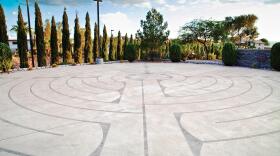Sammy Davis Jr. once joked, “I’m colored, Jewish, and Puerto Rican. When I move into a neighborhood, I wipe it out.”
Clark County had only 127,000 people when the Rat Pack ruled the Strip in 1960. The population as of 2010 has increased 1,436 percent. While this is an incredible factoid all by itself, what heralds even more change is who’s moved into the neighborhood over the last 50 years.
Traditionally, Clark County has been mostly white with a Latino and African-American presence, but that’s been changing. 2010 marks the first census in which non-Hispanic Whites are not a majority (only 48 percent). Latinos now make up over 30 percent. The number of Asian-Americans, which includes Filipinos, Indians, Pakistani, Chinese, Japanese and 36 other national backgrounds, nearly doubled between 2000 and 2010, though they remain less than 10 percent of the population. Politicians, economists and policy-makers are sorting out implications of this shift — but minority leaders already see big changes. Here are some of the biggest changes they see already taking place — to business and beyond.
Small business reboot. Rodney Smith, president and publisher of Our Own Voices, a local publication focused on diversity, has his eye on small business. “We are seeing a coalescence of small businesses into networks that support each other,” he says. “These businesses will be more resilient, more energetic and have a greater power to help start-ups.” Smith believes cultural values and norms of Latinos and Asian-Americans give them an advantage in small business because they can adapt well to what he calls “the coming cash economy.” This is because they value family, community and savings.
Latino start-ups. Andres Ramirez, president of Ramirez Group and member of the Latino Chamber of Commerce, says Latino business are filling the gaps left by a sour economy. “Latino-owned businesses that cater to Latino needs have skyrocketed. This has had a ripple effect in the non-Hispanic community. For example, almost every major casino night club has a Latino night now and they are doing extraordinarily well. Latino start-ups are filling vacancies left behind by failing non-Latino businesses.”
Cash, not credit, is king. Ramirez also notes that Latinos are not feeling the current credit crunch in dried-up financing because most are started with cash and supported by family. “In fact, the newest trend is for commercial banks to try to win Latino business because we have not used banks that much in the past,” he says.
Family ties count. Sanje Sadera, a member of the Asian Chamber of Commerce and owner of Zenith Realty Group, says similar factors make local Asian businesses stronger as well. “They raise funds from their families, their children work in the business and help out. Perseverance and living within one’s means are a part of Asian cultures.” Sadera sees not only Asians supporting other Asians, but a reaching out among all minority groups.
“Las Vegas still offers a lot of economic opportunities,” he says, “especially for businesses that recognize our diverse and new community.”







